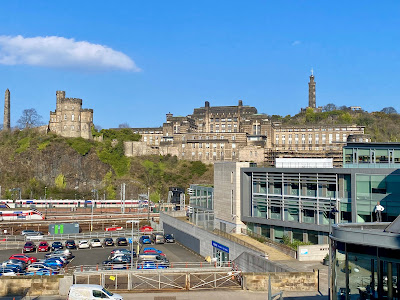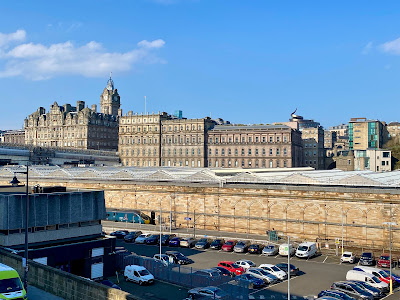 |
| Sir Neil McIntosh |
Tuesday, 8 March 2022
It was my second trip to Edinburgh this year, things are returning to normal after Covid interruptus. we were paying our respects to Sir Neil McIntosh, the doyen of Scottish Chief Executives. He had helped most of us as we began our time as Chief Executives and was always on hand to give his time and confidential advice when difficult decisions were required. Neil retired in 1996 after a varied career as an operations and methods professional with various companies leading him to become a Director of Manpower (Human Resources) at Highland Council. His career was advanced by becoming Chief Executive of Dumfries & Galloway Regional Council where he dealt deftly with the Lockerbie air crash before taking the same position at Strathclyde Regional Council until retiring in 1996. He was the returning officer for the referendum on the Scottish Parliament in 1997, and chair of the Commission on Local Government and the Scottish Parliament that reported in 1999. He was appointed as the Scottish representative on the newly established Electoral Commission in 2001.
After retiring as a Chief Executive, he has spent 26 years passing on his experience and fulfilling numerous important assignments with his customary honest and calm style. In recent years he has helped encourage half a dozen of us to capture the key events of our working lives from the 1970s onwards and record the lived experiences of some of its key players. We are still at the start of this project but with a dozen papers produced and published and over 30 videos in the can that can be found on the Knowledge Hub under the Mercat Group. The mission is to capture some of the key events and the knowledge from key players from the years before and during the parturition of the internet.
He had decided earlier in the year that after a lifetime of devoted public service, it was time to focus more time to his many personal interests. We invited Neil for lunch at the La Garrigue restaurant in Edinburgh to thank him for his unstinting support and to hear how his egalitarian values had shaped his career. He was as friendly and knowledgeable as ever and after hearing of our latest efforts, he shared some of his thoughts about the future of democracy in Scotland. One that needed to evolve but respected subsidiarity as a key component of whatever happened to the future relationship between the nations of the United Kingdom.
He spoke of his varied career and the importance of his time at the Moray Sea School, which was the event that taught him the most. He was in a group that brought together young people from all backgrounds, including offenders and treated them as equals. It taught him to recognise the abilities of all people and the importance of encouragement. We were all benefactors of this, after his retirement, he was always on call to be the fair-minded trusted custodian of democratic institutions from voluntary organisations to Councils and the Scottish Government. It also made me realise that many of Aileen's qualities were possibly acquired during her fortnight at the Moray Sea School as a young publishing editor with William Collins. I was attracted by her serene nature during her robust challenge to a white Rhodesian who was defending apartheid on the night we met.
As I left Edinburgh on the train, the Red Rebel Brigade made a startling appearance to demonstrate that we must pay more than lip service to Climate Change. I’ll buy that.
 |
| Red Rebel Brigade Campaign for Climate Justice |
 |
| Edinburgh Council Offices and Calton Hill |
 |
| View over Waverley Station to Princes Street. |

No comments:
Post a Comment
thanks